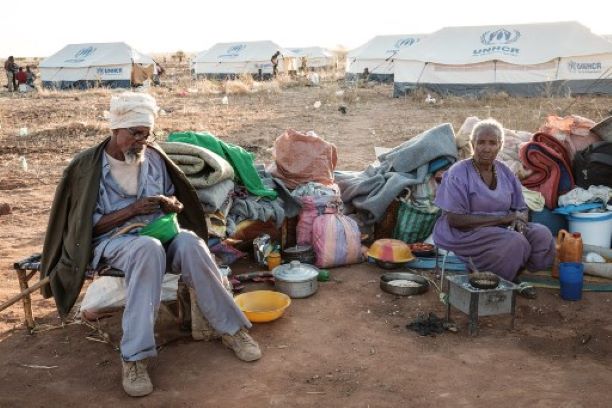
GENEVA (AFP) — The humanitarian situation in Ethiopia’s Tigray region is “increasingly critical”, the UN refugee agency said Tuesday, warning that access to deliver aid was desperately needed.
Ethiopian Prime Minister Abiy Ahmed ordered troops into Tigray on November 4 following alleged attacks by Tigray People’s Liberation Front forces on federal military camps in the northern region.
Abiy, the winner of last year’s Nobel Peace Prize, declared victory in Tigray on November 28, but said Monday that efforts were ongoing to restore order, amid continued fighting and lawlessness that is hampering relief efforts.
“The humanitarian situation is increasingly critical and it is vital that humanitarians are able to urgently assist people,” UN refugee agency (UNHCR) spokesman Babar Baloch told reporters in Geneva.
“Sadly, so far, the badly-needed access is not there.
“It’s very hard to establish what is happening inside the Tigray region at this point.”
Some 96,000 Eritrean refugees, many of whom have fled neighbouring Eritrea’s authoritarian government, were living in four camps in Tigray.
UNHCR has had no humanitarian access to the camps since the start of the unrest and it is thought that stocks delivered beforehand would now have run out.
– ‘Great worry’ –
Baloch said there were reports that some of those Eritrean refugees may now be on the move inside Tigray.
“Our hope is that once we get the direly-needed access to the region, we will be able to assess people and see what has happened,” he said.
“This is an issue of great worry for us.”
He added: “We remain really concerned about the safety and security of civilians in general.”
As for the Ethiopian refugees fleeing Tigray for Sudan, Baloch said that 49,000 had now crossed the border since the beginning of November.
The number of daily arrivals typically fluctuates between around 400 and 700.
“There are concerns about refugees who want to leave and flee and seek safety in Sudan and may have been prevented. Refugees who are arriving are reporting an increasing number of checkpoints,” said Baloch.
“Many of them have been hoping that if peace is established they will be able to go back home.”
© Agence France-Presse
